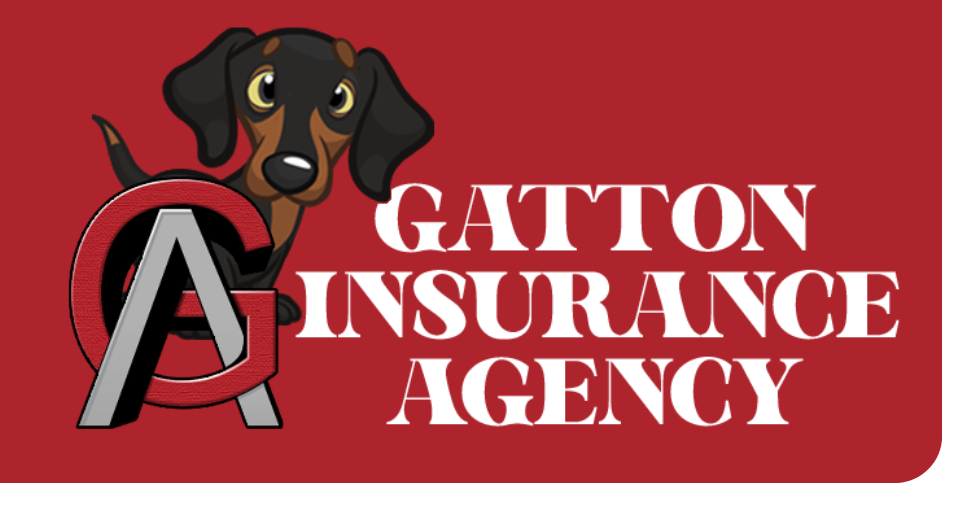Introduction to Homeowners Insurance
Homeowners insurance serves as a fundamental safeguard for property owners, providing essential protection for both the physical structure of a home and the valuable personal belongings within it. In Indiana, as in many other states, these insurance policies are crafted to cover a range of risks that homeowners might face, including theft, fire, and, importantly, some forms of natural disasters. The significance of homeowners insurance cannot be overstated, as it not only offers financial security but also peace of mind.
At its core, a homeowners insurance policy generally comprises several key components. Dwelling coverage protects the physical structure of a home from various perils, ensuring that the homeowner can repair or rebuild in the event of damage. Personal property coverage is equally important, as it secures the belongings within the home, such as furniture, electronics, and clothing, against loss or damage. Beyond these protections, liability coverage is designed to shield homeowners from personal injury claims or property damage incidents that may occur on their premises, ensuring that any legal expenses resulting from such claims do not lead to financial hardship.
Additionally, homeowners insurance often includes provisions for additional living expenses. This aspect of coverage is critical if the home becomes uninhabitable due to a covered loss. It helps to cover the costs associated with temporary housing and living expenses while the home is being repaired. With the unique climate and environmental factors present in Indiana, residents should consider the specific terms of their homeowners insurance policy and consult with providers like The Gatton Agency to ensure that they are adequately protected against both common risks and natural disasters. Understanding these dimensions of homeowners insurance is essential for making informed decisions and safeguarding one’s investment.
Understanding Natural Disasters
Natural disasters are catastrophic events that occur due to natural processes of the Earth. They often result in significant damage to property, loss of life, and economic hardship. In the context of homeowners in Indiana, these disasters can take many forms, including hurricanes, tornadoes, floods, earthquakes, and wildfires. Each disaster has its own characteristics and impacts, necessitating specific considerations for insurance coverage.
For instance, hurricanes, although more common in coastal areas, can still affect Indiana through heavy rainfall and high winds, leading to flooding and property damage. Tornadoes are more prevalent in this state, particularly in the spring and early summer, making them a significant concern for Indiana residents. The state typically experiences several tornadoes each year, with varying degrees of destruction, underscoring the necessity for appropriate insurance protection.
Flooding is another natural disaster that poses a threat to homeowners in Indiana. Whether resulting from heavy rains, rapid snowmelt, or breaches of local dams, floods can wreak havoc on homes and infrastructure. According to the Indiana Department of Homeland Security, flooding has historically been a leading cause of property loss in the region. Earthquakes, while less frequent, are not unheard of, and even minor tremors can lead to structural damages if not adequately insured.
Finally, wildfires, though more commonly associated with regions like California, can occur in Indiana, especially in rural areas during dry spells. While their frequency is relatively low, the devastation they cause can be substantial. Understanding these risks is essential for homeowners as they navigate their insurance options with agencies like The Gatton Agency, which can help them determine the right coverage for their specific needs and geographical risks.
Homeowners Insurance Coverage in Indiana
Homeowners insurance in Indiana is designed to provide financial protection for property owners against various risks, including damage to the home and personal belongings. Typically, standard policies offer coverage for perils such as fire, theft, vandalism, and certain weather-related incidents. However, it is essential for homeowners to understand the specifics of their coverage, particularly regarding natural disasters.
In Indiana, homeowners insurance generally covers damage caused by events like hail, windstorms, and certain types of flooding under limited circumstances. However, it is important to note that not all natural disasters are covered. For example, standard homeowners insurance often excludes coverage for flooding unless a separate flood insurance policy is secured. Additionally, earthquakes and landslides are commonly excluded, which can be a surprise for those living in areas prone to these events. As a consequence, Indiana residents may need to consider additional insurance options to adequately protect their properties against such risks.
Moreover, some homeowners in Indiana opt for additional riders or endorsements to their insurance policies for extended coverage. This can include coverage for personal property damaged by natural disasters that are otherwise not included in a standard policy. The Gatton Agency, a reputable provider in Indiana, offers consultations to help homeowners assess their specific needs and navigate the complexities of homeowners insurance. It is recommended that Indiana homeowners regularly review their policies to ensure they have adequate coverage that reflects their unique circumstances and the potential risks posed by natural disasters.
Specific Natural Disasters and Coverage
Homeowners insurance in Indiana offers an essential layer of protection for property owners, particularly in a state that experiences various natural disasters. Understanding how specific events are treated under homeowners insurance is crucial for policyholders. Among the most common natural disasters that can affect Indiana are tornadoes, floods, and earthquakes, each of which has distinct coverage implications.
Tornadoes are a significant concern in Indiana, given the frequency of severe storm occurrences. Typically, standard Indiana homeowners insurance policies cover damage caused by tornadoes. This means that if a tornado were to damage your home or belongings, repairs should be included in your homeowners insurance coverage. However, it is advisable to review the specifics of your policy as coverage limits and conditions may vary. It is also important to consider that structural damage may be covered while additional living expenses incurred during repairs may require careful scrutiny of the policy terms.
Conversely, flood damage presents a more complex situation. Most homeowners insurance policies in Indiana do not cover flood damage as a standard provision. Property owners must acquire separate flood insurance through the National Flood Insurance Program (NFIP) or private insurers. Given Indiana’s vulnerability to excessive rainfall and resulting floods, securing this additional policy is essential for comprehensive home protection.
Finally, earthquakes, while less frequent in Indiana compared to other states, can still occur and cause significant damage. Standard homeowners insurance generally does not encompass earthquake damage, necessitating separate earthquake insurance policies or endorsements to afford coverage. This distinction emphasizes the importance of understanding your homeowners insurance policy comprehensively to navigate potential risks effectively.
Flood Insurance: An Essential Consideration
Indiana residents must recognize the importance of flood insurance, particularly due to the state’s vulnerability to flooding. Flooding can occur suddenly and with little warning, often as a result of heavy rainfall, snowmelt, or even the failure of local drainage systems. Standard homeowners insurance policies typically do not cover flood damage, which can lead to significant financial losses for homeowners who neglect to secure separate flood coverage. Therefore, it becomes imperative for Indiana homeowners to take proactive measures to protect their properties against flood risks.
The National Flood Insurance Program (NFIP) offers a structured approach to obtaining flood insurance. These policies are designed to help individuals recover financially in the aftermath of a flood by providing necessary funds to repair or replace damaged structures and personal belongings. According to the NFIP, flooding is the most common and widespread natural disaster in the United States, and this realization highlights the need for appropriate insurance coverage. Indiana’s geographic and climatic conditions mean that homeowners should be particularly attentive to these risks.
In addition to protecting the property itself, acquiring flood insurance through the NFIP can also provide peace of mind to homeowners. It signifies a commitment to safeguarding one’s residence and mitigating potential future financial hardships. While some individuals may assume that living in an area not designated as a flood zone negates the need for flood insurance, statistics show that many flood claims come from properties situated outside high-risk zones. Given this context, working with local experts, such as The Gatton Agency, can further refine insurance strategies tailored to specific needs and risks in Indiana.
Earthquake Insurance: Is It Necessary in Indiana?
In Indiana, the likelihood of experiencing a significant earthquake is relatively low compared to more seismically active regions of the United States. However, the state is not entirely exempt from seismic events. Historical data indicates that Indiana has experienced several minor earthquakes, with some capable of causing structural damage. As such, the relevance of earthquake insurance in the context of Indiana homeowners should not be dismissed entirely, especially when considering the unpredictable nature of natural disasters.
Homeowners insurance in Indiana typically covers a range of perils, but earthquake damage is often excluded from standard policies. Therefore, Indiana residents may need to explore additional options, such as endorsements or separate policies that specifically include earthquake coverage. The Gatton Agency, a prominent insurance provider, offers insights into how homeowners can tailor their insurance plans to better accommodate potential risks, including earthquakes.
Despite the relative infrequency of major seismic events in Indiana, a comprehensive risk assessment is essential for homeowners. Factors such as the age of a home, local soil conditions, and existing structural vulnerabilities can influence the need for earthquake insurance. Homeowners should take proactive measures by consulting with qualified insurance agents to determine the appropriateness of adding an earthquake endorsement to their existing insurance plans.
Moreover, economic considerations play a vital role in this decision. The cost of earthquake insurance can vary based on factors like property location, the home’s value, and the level of coverage selected. Ultimately, evaluating the potential costs associated with earthquake damage against the cost of insurance can lead to an informed decision that aligns with individual risk tolerance and financial goals.
Tips for Choosing the Right Homeowners Insurance
Selecting the appropriate homeowners insurance policy is crucial for safeguarding your home and personal property, particularly in Indiana, where natural disasters can pose significant risks. To make informed choices, homeowners should consider several key factors that influence insurance coverage and premiums.
First, it is essential to compare policies from multiple providers, including The Gatton Agency. Each insurer may offer different coverage options, limits, and exclusions regarding natural disasters such as floods, tornadoes, or winter storms. Take the time to evaluate each policy’s specifics and how well they align with your needs.
Understanding deductibles is another vital aspect when choosing insurance. A deductible is the amount you must pay out-of-pocket before your insurance coverage kicks in. Policies with lower premiums often come with higher deductibles; hence, it’s crucial to determine what you can reasonably afford in the event of a disaster. Evaluate your financial situation to choose a deductible that provides a balance between affordable premiums and coverage adequacy.
Furthermore, consider the valuation of your personal property. Homeowners insurance typically allows for different valuation methods, such as actual cash value or replacement cost coverage. Ensure that your policy adequately reflects the value of your belongings, so you are not underinsured. Conduct a thorough inventory of your possessions and maintain clear records, including receipts and photographs, to ease the claims process if needed.
Finally, always read the fine print of any homeowners insurance policy. Specific exclusions and conditions can significantly impact your coverage in the event of natural disasters. Familiarize yourself with what is included and what is not, and ask your insurance agent questions to clarify any uncertainties. By following these guidelines, Indiana homeowners can make informed decisions in selecting the best insurance policy for their needs.
Frequently Asked Questions (FAQs)
Homeowners in Indiana often have questions about the extent of their insurance coverage, particularly regarding natural disasters. Understanding the ins and outs of homeowners insurance can help policyholders make informed decisions. One common question is whether standard homeowners insurance policies cover events like floods or earthquakes. In general, standard policies issued by Indiana insurance providers, including The Gatton Agency, typically do not cover these types of natural disasters. Homeowners concerned about such exclusions should consider additional policies, such as flood or earthquake insurance, to ensure they have adequate protection.
Another frequent inquiry relates to how to file a claim following a natural disaster. The process can vary depending on the type of disaster and the specific insurance policy. Indiana residents are encouraged to document all damages immediately and contact their insurance provider to initiate the claims process. It is advisable to keep a record of all communications and any steps taken to address the loss. The Gatton Agency can offer guidance on navigating this process, helping homeowners understand their rights and obligations when filing claims for covered events.
Additionally, many homeowners ask about options for enhancing their policies. Indiana insurers may offer endorsements or add-ons that can provide broader coverage or higher limits for specific types of losses. It is crucial to review these options, especially for those living in areas prone to certain natural disasters. Engaging in a discussion with an insurance agent can also clarify what additional protections are available and how they can be tailored to meet individual needs. Homeowners should stay proactive and regularly review their policies to ensure comprehensive coverage against potential natural disasters.
Conclusion and Final Thoughts
Understanding the nuances of homeowners insurance is crucial for any property owner in Indiana, particularly when it comes to natural disasters. The state faces various environmental risks, from floods to tornadoes, and the coverage provided by insurance policies can vary widely. It is essential for homeowners to assess their specific vulnerabilities and align them with the appropriate insurance coverage offered by providers such as The Gatton Agency.
Throughout this discussion, we have highlighted the importance of reviewing one’s homeowners insurance policy to ensure that it encompasses necessary protections against potential natural disasters. Many standard policies may not automatically include specific disaster coverage, which can lead to unexpected financial burdens should a calamity occur. It is advisable to examine exclusions, limitations, and additional endorsements that could enhance one’s insurance plan.
Moreover, the significance of local context cannot be overstated. Each region in Indiana might experience different levels of natural risk, necessitating tailored insurance solutions. By consulting with knowledgeable insurance agents, homeowners can better understand their needs and receive recommendations that specifically suit their location and lifestyle. The Gatton Agency, for instance, offers expertise that can help residents navigate these decisions effectively, ensuring that their property is adequately protected.
In conclusion, gaining clarity on the specifics of homeowners insurance coverage related to natural disasters is invaluable. Homeowners must take proactive steps to audit their policies, stay informed about their local risks, and discuss options with their insurance providers. By doing so, they can secure peace of mind knowing that they are prepared for the unexpected challenges that nature may bring.




